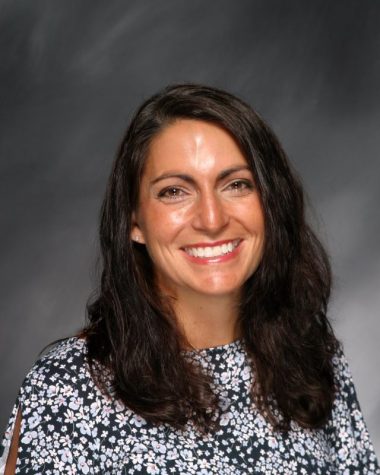Reverbs from the ECHO Chamber — a Q & A with Mrs. Judith Waggoner
April 9, 2020

Another in a continuing series of Q & A interviews with Trinity faculty, staff and administrators.
Have you ever wondered how murders are solved? In Trinity’s forensic science class, students learn to conduct a murder investigation, among many other fascinating activities with teacher Mrs. Judith Waggoner.
Q: What is forensic science?
A: To me, forensic science is all about trying to illustrate to students how evidence is collected at a crime scene in order to be used in a court of law.
Q: What is your favorite part of forensic science?
A: My favorite part is getting to show students what forensics is about. It’s not what they see on TV. It’s a lot more tedious than people expect. You have to make sure that evidence is collected in a manner that can be used in court.
Q: Why did you study forensic science and physics?
A: My background covers all different areas of science. I know environmental science as well as astronomy and geology. I like to know how the world works. For forensic science, my background starts in biology, where I taught biological forensic science. I also used to teach anatomy, and we were able to go over hair analyses and things that are used in forensics. The forensic science I teach right now is all about the physical evidence, which doesn’t involve any biological factors. That aspect of forensic science is how you contain and maintain the evidence. We go over ballistics and fingerprints and study the criminals over time. We also study document analysis and handwriting.
Q: What type of education did you pursue?
A: With forensic science, you don’t need an actual degree to teach it. I have a bachelor’s in zoology and a bachelor of science in environmental science. I am also working on a degree in ecological behavior. That’s where you study the behavior of everything, and it can translate into forensic science. It shows the nature of people in a criminal element. It shows how we can lead to their eventual capture due to their mistakes.
Q: What would you suggest for students interested in forensic science?
A: There are great university programs (at schools) such as U of L or EKU in the state. They can help reach this, and if you are looking more into the science side of things, you can get a bachelor’s in basic biology or chemistry. Many people who work in the lab in this field have a background in chemistry.
Q: Who has been the most impactful person in helping you in this field of study?
A: One of the people who has helped me throughout my whole forensics process is a lady in the coroner’s office. She has helped show me what they do with the evidence that is collected from bodies, and how they use it for investigations — particularly when they are dealing with people who are unidentifiable. She has been helpful to me in terms of teaching.
Q: What are the requirements to pursue a criminal justice major?
A: There are no restrictions on who can join criminal justice. Some people get a degree in criminal justice and then later go into the police academy. Of course, they have some physical requirements once they reach that point. If you want to become a detective, usually you follow the route with a criminal justice major and then the police academy. If you are more hands-on, you can go into evidence analysis.

